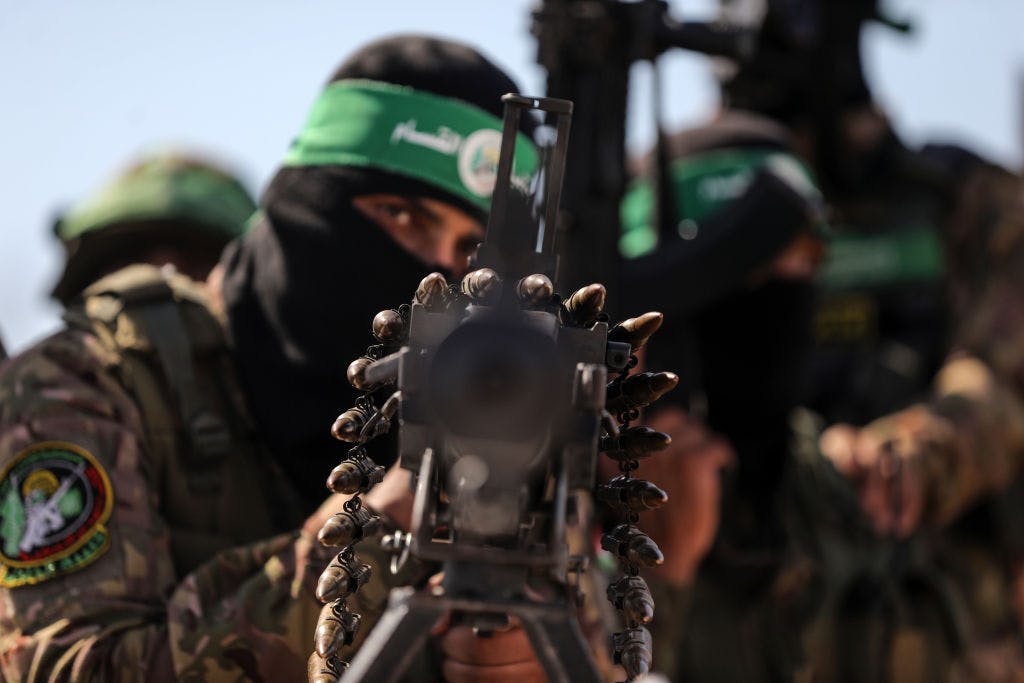Published: 30 May 2023
Last updated: 5 March 2024
As Israel and Hezbollah exchange threats, the two leaders have displayed risk-averse characters that achieved mutual deterrence - until now.
In recent days, an unusual exchange of public threats between Israeli officials and Hezbollah has taken place. Israel’s top military voices claimed that Hassan Nasrallah, the leader of the militant Lebanese organisation, has a dangerously high sense of confidence which might lead him to take uncalculated risks against Israel.
From its side, Hezbollah held a high-profile military drill, and Nasrallah himself openly warned Israel against any attempt to carry out an attack in Lebanon.
Such high-note mutual threats are part of the ongoing Israeli-Hezbollah rhetoric, but many analysts and experts agree that neither side wishes to start an all-out military campaign against the other. Nevertheless, a dynamic of threats and miscalculations can always spiral into an unwanted conflict.
The two main decision-makers to watch are Benjamin Netanyahu and Nasrallah. They have known each other as rivals for almost 20 years and share many characteristics that have enabled them to avoid large-scale confrontations during their mutual time in power.
It is worth remembering that the 2006 war broke out at a time when Netanyahu was not in power. Nasrallah confessed years later that he miscalculated the Israeli government’s response to Hezbollah’s attack which triggered the war, led by then prime minister Ehud Olmert.
Both Netanyahu and Nasrallah are savvy political leaders who tend to be risk-averse.
Both Nasrallah and Netanyahu first took power in the 1990s. Nasrallah in 1992 after Israel assassinated the head of Hezbollah, Abbas al-Musawi, and Netanyahu in 1996 after winning the elections that followed prime minister Yitzhak Rabin’s assassination. Since then, the two leaders have spent most of their time in power verbally confronting each other.
The two also share similar backgrounds and life experience. Both men are first and foremost political leaders with a limited military background.
Nasrallah established and developed leadership skills during his rule in the civilian wing of Hezbollah. He was never a part of its terror/military apparatus. This limited knowledge and experience was compensated by working closely with others – Imad Mughniyah, who was known as the chief of staff until his assassination in 2008, and subsequently Iranian Islamic Revolutionary Guard Corps consultants posted in Lebanon.
In the public sphere, Nasrallah used the death of his son during a clash with IDF forces along the Israeli-Lebanese border in 1997 to emphasise his personal contribution to the fight against Israel. Nasrallah used this narrative to divert attention from the fact that he was never a member of a fighting unit in the organisation.
Similarly, Netanyahu’s military experience is also limited. Even though he served in an elite unit, Netanyahu has no military achievements to his name and he finished his military service in the IDF after five years at the rank of captain. Like Nasrallah, Netanyahu uses his family heritage – the heroic death of his brother Yonatan during the Entebbe raid in 1976 – to create a narrative that served his political ambitions.
Both Netanyahu and Nasrallah are savvy political leaders who tend to be risk-averse. Under Netanyahu's long-serving governments, Israel took a conservative approach towards Hezbollah, operating only at the tactical level, maintaining the status quo along its northern border.
The three major events which created a strategic outcome for Israel’s policy in Lebanon were all products of other prime ministers: the 2000 IDF withdrawal from Lebanon under Ehud Barak’s government; the 2006 war led by Ehud Olmert; and the 2022 maritime border agreement signed by the Lapid-Bennett government.
For Nasrallah, the situation is similar. Israel is its great enemy, but Hezbollah has rarely initiated an attack against Israel. Most of its terror acts are small-scale, tactical in nature, and almost always in retaliation to a prior Israeli action. As noted above, the Hezbollah attack which led to the 2006 war was acknowledged as a mistake by Nasrallah.
The common desire of Netanyahu and Nasrallah to avoid large-scale military confrontation was, and probably still is, the cornerstone of the decade-long stability between Israel and Lebanon. The two leaders share the same fear of dragging their countries into a devastating war, and this personality feature is a crucial factor in the mutual deterrence which exists between Israel and Hezbollah.
Until now, both Netanyahu and Nasrallah have been successful in their ability to hold back challenges to take a more aggressive approach. Nasrallah is constantly under pressure, either from Iran or militant Palestinian groups, to take a more active role in the fight against Israel and demonstrate his commitment to armed resistance.
Netanyahu pushes back against right-wing politicians, commentators and analysts who urge him to lead with preemptive surprise military strikes on Hezbollah and its military assets in Lebanon. The traditionally cautious approach of the Israeli security establishment helps Netanyahu to dissolve that external pressure.
With an exchange of fiery rhetoric now occurring between Israel and Hezbollah, much is dependent on the two long-standing rivals. Keeping in mind the catastrophic outcomes of the 1982 and 2006 Israel-Lebanon wars, we should all hope the two leaders will be able stick to their natural tendencies and withstand pressures and miscalculations that could lead to a third war in 2023.
Photo: Hezbollah's leader Hassan Nasrallah in a video message at a public rally in Lebanon (AFP/Anwar Amro).
READ MORE
Israel's Intel Chief Tries to Redraw Boundaries for an Increasingly Confident Nasrallah (Haaretz)
RELATED STORY
Nasrallah warns IDF intel chief: We are the ones threatening war (Jerusalem Post)
The Hezbollah chief was responding to Aharon Haliva, emphasising that "any war will include all of Israel's borders."
Analysis: Israel's intel chief tries to redraw boundaries for an increasingly confident Nasrallah (Haaretz)
After years of acting with caution, Nasrallah believes he can test mutual understandings with Israel and that Netanyahu has limited room to manoeuvre.




